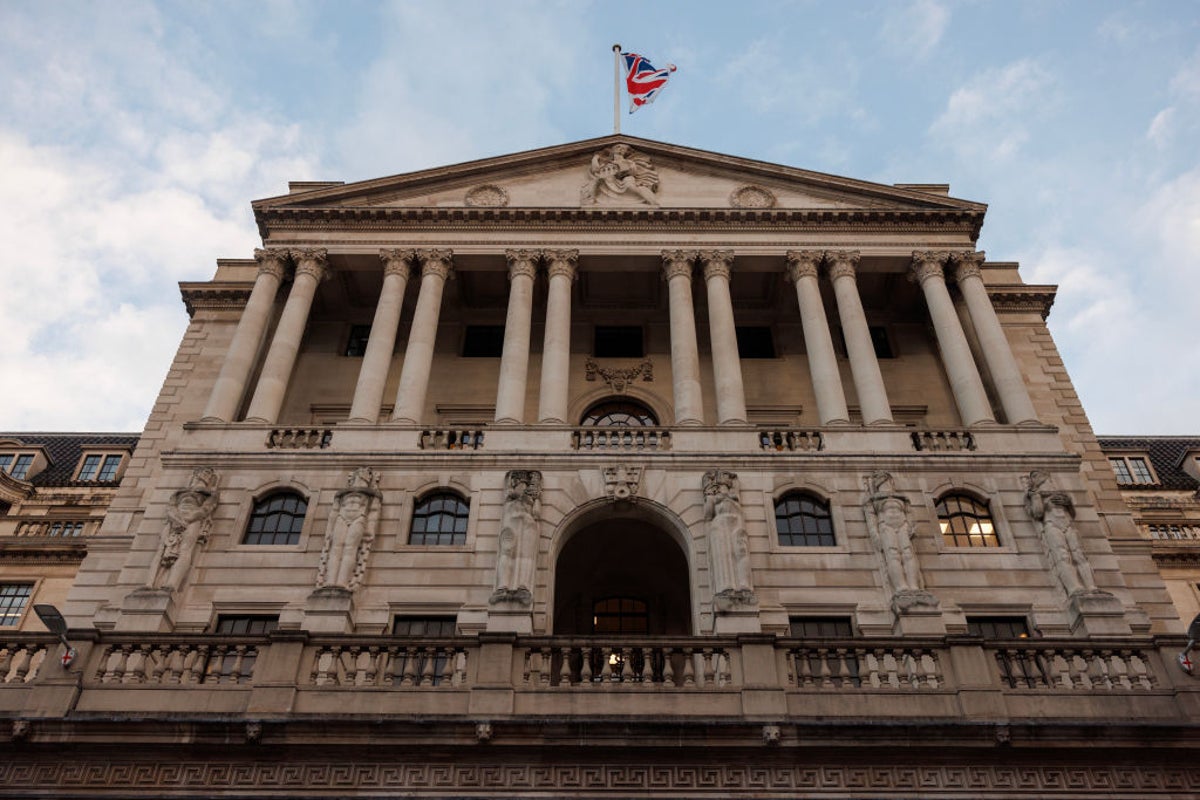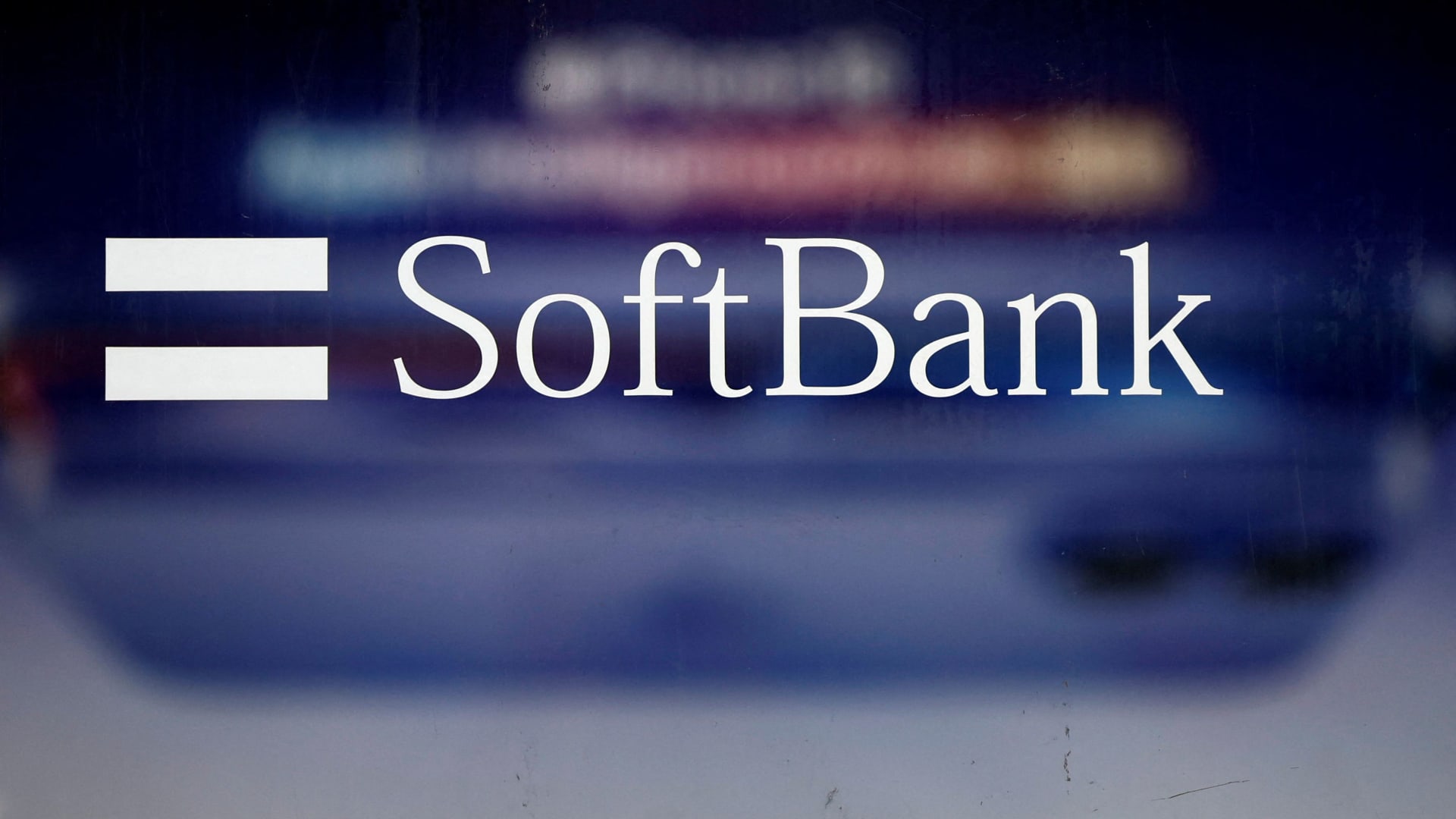Interest rates: Bank of England warns surging food prices could push inflation to 4%

Experts cautious over predicting further cuts
Some economists said the more cautious tone coming from the central bank could make further interest rate cuts this year less likely.
The pound strengthened after today’s decision, indicating that traders welcomed the potential for UK borrowing costs to remain higher for longer.
Sandra Horsfield, an economist at Investec, said she was expecting another 0.25 percentage-point cut in November, followed by further reductions in 2026 until the base rate reaches 3% next summer.
“However, our confidence in this view has diminished,” she said.
Jane Dalton7 August 2025 18:28
Inflation peak higher than previously forecasted
Inflation is expected to accelerate in the coming months, putting more pressure on household budgets.
Consumer price index (CPI) inflation is now on track to peak at 4% in September, surpassing previous guidance that it would peak at 3.5%.
The increased cost of living is largely being driven by higher energy and food prices, according to the Bank.
Food prices have jumped in recent months – with the cost of chocolate, coffee and beef all accelerating.
Inflation will remain higher than previously expected for the next two years – but drop below the Bank’s 2% target rate by 2027.
Jane Dalton7 August 2025 17:55
Accountants cast doubt on more rate cuts this year
Suren Thiru, economics director at the Institute of Chartered Accountants in England and Wales, said: “The close vote split in favour of loosening policy suggests that policymakers are struggling to balance supporting a weakening economy with keeping a lid on rising inflation, inevitably casting doubt on further rate cuts this year.
“August’s policy loosening is likely [to be] the beginning of the end of this rate-cutting cycle, with the bank’s forecasts of higher inflation likely to push policymakers to press the pause button on interest rate cuts sooner rather than later.”
Jane Dalton7 August 2025 17:25
One more rate cut this year predicted
Andrew Montlake, chief executive of Coreco mortgage brokers, said: “It now seems there is maybe just room for one more cut before the end of the year if inflation starts to play ball, and while you may see two- and five-year fixes reach around 3.5%, it is unlikely to fall much further.
“The last quarter of the year is set to be a busy time in the mortgage market as lenders battle for business in a competitive environment and borrowers take advantage of a buyers’ market while it is still around.”
David Hollingworth, associate director at L&C Mortgages, said: “The good news for fixed-rate borrowers coming to the end of a deal is that rates have been falling.
“That’s because today’s cut was so widely expected that it’s already allowed lenders the chance to improve their rates although it means we are unlikely to see fixes plummet further because of today’s cut.”
.jpeg?quality=75&width=320&trim=0%2C0%2C0%2C0&auto=webp 320w, https://static.independent.co.uk/2025/08/07/10/52/BoE-Database_export-(2).jpeg?quality=75&width=640&trim=0%2C0%2C0%2C0&auto=webp 640w)
Jane Dalton7 August 2025 16:50
Home loans for some borrowers to fall by nearly £14 monthly
Mortgage-holders on a standard variable rate (SVR) deal could have their monthly payments reduced by £13.87 on average, adding up to an annual saving of £166.44 – provided the lender passes on the base rate cut in full.
Borrowers often end up on an SVR when their initial deal ends and the rate is set by individual lenders but often follows movements in the base rate.
Jane Dalton7 August 2025 16:20
Effect of householders may be gradual, says expert
Dean Butler, of Standard Life, said: “For borrowers, particularly those on variable rate mortgages or nearing the end of fixed-term deals, this move offers some relief.
“However, with household budgets still under strain from high living costs, the impact may be gradual rather than immediate.
“The path ahead remains uncertain, and further rate cuts in 2025 are not guaranteed.
“Savers face a more complex picture. Retail cash rates may begin to fall and with inflation still elevated, real returns on cash savings risk being eroded.
“Maintaining accessible cash for short-term needs remains sensible, but it’s increasingly important to consider long-term strategies.”
Jane Dalton7 August 2025 15:50
Tracker loan holders to save £29 a month
Nearly £29 will be shaved off the monthly repayments of an average homeowner on a tracker mortgage, according to industry figures.
Banking and finance industry body UK Finance calculated that the reduction in the base rate, from 4.25% to 4%, will mean the typical mortgage holder on a deal that directly tracks the base rate will pay £28.97 per month less, based on the average balance outstanding.
Over a year, this adds up to a reduction of nearly £350 (£347.64).

Jane Dalton7 August 2025 15:25
Call for action to bring down cost of living
Ashwin Kumar, director of research and policy at the Institute for Public Policy Research, said: “With growth reducing in the past couple of months, fewer employees paying taxes and Trump’s tariffs increasing global trade frictions, the Bank of England’s rate cut from 4.25 to 4 per cent is welcome but not enough.
“The Bank has kept rates too high for too long. Inflation is expected to return to target, with risks to the economy and global growth over the next few years warranting a larger cut of 0.5 per cent.
“The government has other options to ease pressures on households immediately – even as price increases are set to slow, essential costs remain high, and further action is needed to bring down the cost of living.
“One way to deliver swift support is by rebalancing energy bills: lowering electricity prices, helping with energy debts, and ensuring that households access the cheapest energy prices on offer.”
Jane Dalton7 August 2025 15:05
Chambers of Commerce back rate cut
David Bharier of the British Chambers of Commerce said the Bank is right to act to “mitigate the risk of a deeper downturn”.
“SMEs in particular have been under sustained pressure from cumulative cost increases and external shocks.
“The impact of April’s national insurance rise is now tangible, with firms reporting reduced investment and recruitment plans.
“Rate cuts alone are only part of the solution. To restore business confidence, firms will need to see a roadmap to lower their cost burden, further improvements to ease trade friction, and greater investment in AI and infrastructure.”
Jane Dalton7 August 2025 14:45
[title_words_as_hashtags




